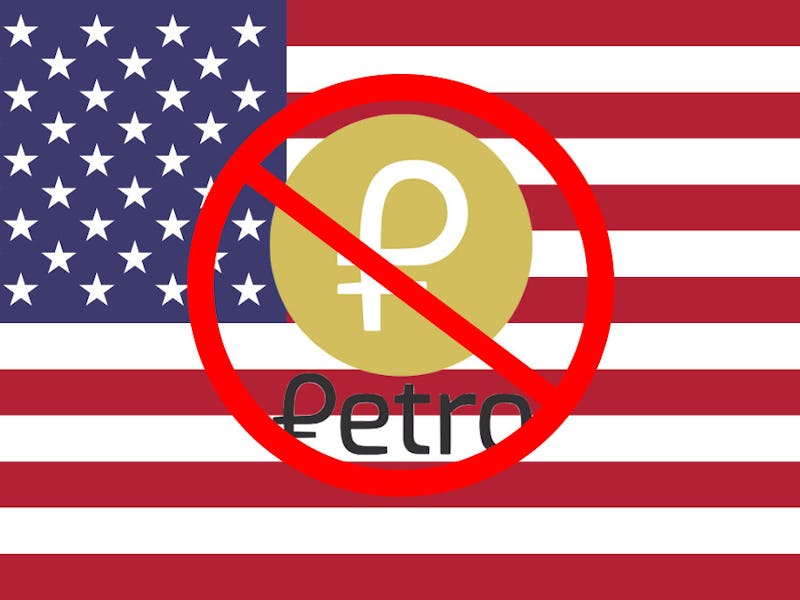Trump Bans Americans From Buying Venezuela's Cryptocurrency
The first cryptocurrency-related executive order U.S. history.

President Donald Trump issued an executive order Monday that barred any American or anyone in United States territories from purchasing or transacting in Venezuela’s new cryptocurrency, the petro. This is the first digital currency-related executive order to be enacted by a president in U.S. history.
The White House justified this move by claiming that Venezuela’s president Nicolás Maduro was attempting to sidestep U.S. economic sanctions with this initial coin offering. The Trump Administration has been pressuring Maduro’s government in light of the humanitarian crisis unraveling in Venezuela.
The creation of the petro in February 2018 has been widely seen as an attempt to salvage the floundering Venezuelan economy. Maduro even said in a December 2017 statement that it would serve as a way to “overcome the financial blockade,” which might have been eluding to U.S. sanctions.
The token is claimed to be backed by Venezuela’s oil and mineral reserves and it can only be used to pay taxes in the country. However, it can only be purchased with the U.S. dollar, euros, bitcoin, and Ethereum, which greatly limits its availability to Venezuelan nationals.
Maduro claimed the country raised $735 million on the day of the petro’s pre-sale, February 20. However Venezuelan legislator, Jorge Millán denounced the cryptocurrency on Twitter as being “illegal and unconstitutional” as well as a “new scam of the regime.”
Trump’s executive order should not come as a surprise. On August 2017, the sitting president furthered economic sanctions against the Venezuelan set in place by his predecessor, President Barack Obama.
During the petro’s launch, the U.S. Treasury warned investors to steer clear of the virtual token in case it violated sanctions. Trump’s announcement Monday further solidified the hardline stance the White House is taking against Maduro and his ruling party.